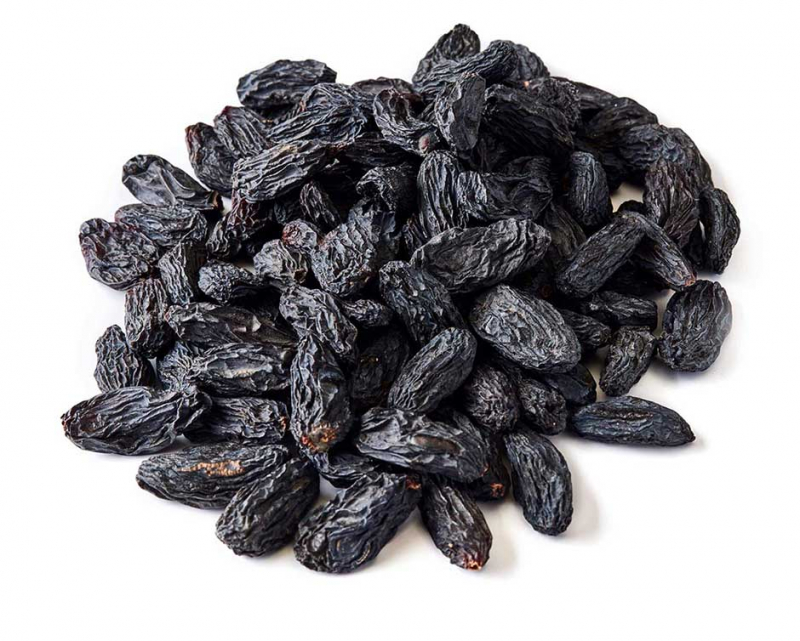Black Monukka
The USDA obtained 'Black Monukka' from England, where it had been acquired from India, around 1910. Its real origin is unknown; however, it is considered to have sprung from the name of a Persian elongated grape called 'Munaqqa', which means "raisin". Because of its larger raisin size, darker color, and more seed traces in comparison to 'Thompson Seedless', it has never been popular in California's conventional raisin markets. Its unusual properties, such as blackish hue, soft skin, and trademark rich flavor, make it popular in niche markets such as health food stores.
The Black Monukka is a fully seedless black table grape. It has soft skin and a deliciously crisp, sweet flavor. Its unusual properties, such as blackish hue, soft skin, and trademark rich flavor, make it popular in niche markets such as health food stores. Because of its sweet taste and juicy flavor when dried, this grape is a popular choice for raisins.
Sugars (glucose and fructose), vitamins (ascorbic acid, riboflavin, thiamin, pyridoxine), dietary fibers, and minerals are high in Munakka (zinc, phosphorous, iron, magnesium, calcium, potassium). Munakka also contains flavonoids, resveratrol, epicatechins, phytoestrogens, and hydrocinnamic acids, among other phytochemicals (plant-derived compounds). Munakka also contains vitamin C and antioxidants, which may aid in the maintenance of youthful skin.












